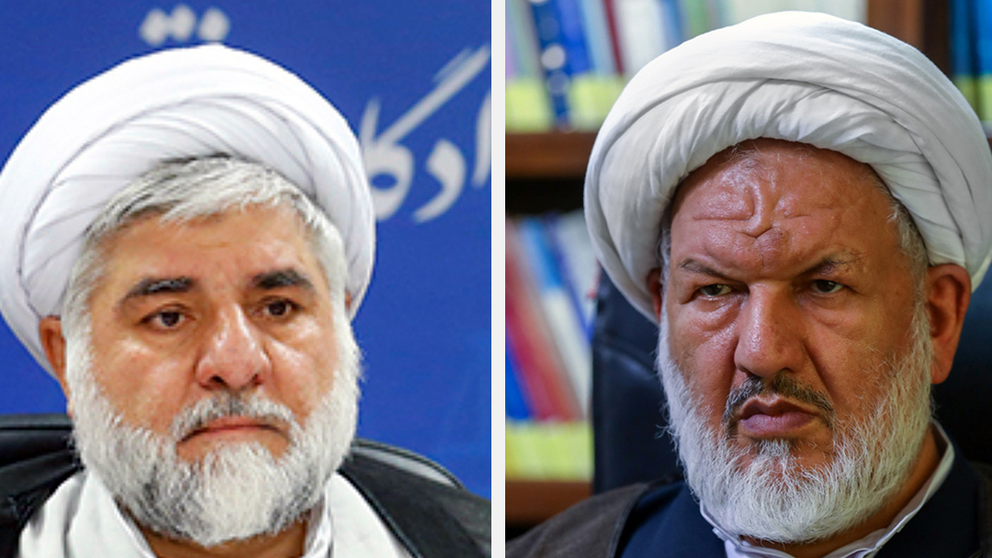Iran arrests father of slain judges’ assassin for alleged complicity

Iran's Ministry of Intelligence agents have arrested the father of the assailant who killed two Supreme Court judges notorious for human rights violations in Tehran in January, Iran International has learned.
According to sources familiar with the case who spoke to Iran International on condition of anonymity, the Ministry of Intelligence has accused the father of conspiring with his son in the assassinations.
The assailant, whose identity remains undisclosed, had 10 years of experience working within the Supreme Court before allegedly taking his own life while being pursued by security forces.
Supreme Court judges Ali Razini and Mohammad Moghiseh were gunned down in their offices in a secure government building.
In the aftermath, Iranian security forces launched a widespread crackdown, arresting several former political prisoners. One such detainee is Bijan Kazemi, a former political prisoner whose home was raided on January 21.
All electronic devices belonging to Kazemi and his family were confiscated, and he was transferred to Ward 209 of Tehran's notorious Evin Prison. A source close to the matter revealed to Iran International that Kazemi is being tortured in an attempt to force a confession that he provided the weapon used in the assassinations.
Kazemi, who had previously served two years in prison after a 2020 arrest due to alleged ties with the Mojahedin-e Khalq (MEK), has been subjected to beatings by Intelligence Ministry agents. The MEK has been repeatedly blamed by Iranian authorities for orchestrating attacks against Tehran authorities, including this high-profile assassination.
Both Razini and Moghiseh were infamous for their harsh rulings against political dissidents, particularly during the 1988 mass executions of political prisoners. Critics had long referred to them as the "hanging judges" due to their roles in issuing death sentences during the regime's brutal crackdowns.
The assassination of the two judges has sent shockwaves across the country, particularly among former political prisoners who have recounted their encounters with the judges' severe punishments.
Despite multiple arrests, including that of Kazemi, the Islamic Republic has provided conflicting narratives about the motive and details of the attack. Authorities such as Ebrahim Rezaei, the spokesperson for the National Security Commission, and Jafar Ghadiani, the Disciplinary Prosecutor for Judges, have pointed fingers at the MEK. However, the lack of transparency and the use of torture to extract confessions have cast doubt on these claims.








